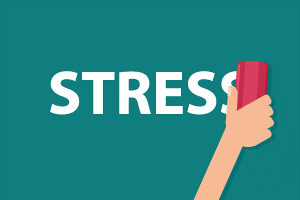How to Cope with School Stress
This school year is not how many of us anticipated it to be. The walking restrictions, smaller classrooms, and strange schedule are completely new to both the students and teachers, and we are all feeling the pressure of adapting to change.
Personally, I have never felt anxious in school until this year, so I pinpointed the main stressors that have affected me and my peers.
- The burden of a week’s worth of work given at the start of the week. Although it’s not as much as it seems, we’re sent a plan of the whole week on Mondays. As someone who overthinks everything, it is overwhelming to see a bunch of assignments that need to be done all by different times.
- One solution: Write down each day what you can do for each class without overworking yourself. The best thing to do is to complete everything one-by-one, this way you won’t feel the unnecessary stress due to the overload of 3-5 different assignments.
- The lack of social interaction. Since only a handful of students are allowed in each classroom, it is a very big factor in school stress. It’s now six weeks into the school year and I feel like I don’t know any of my classmates. The lack of interaction may lead to feelings of loneliness and sadness, which can be prevented. Although the sole purpose of school is to learn, the social aspect of it relieves stress and negative energy built up throughout the day.
- One solution: Be open to introducing yourself to students in class and then pursue friendly conversations over the phone. Social media is a great way to feel connected with others, but it’s always important to use in a positive manner.
- The school atmosphere. After months of being stuck inside, home has likely become your safe space, so going to school may feel weird and uncomfortable.
- One solution: If the atmosphere around you is not what you’re used to, you’re most likely tensed up and nervous inside. Reground yourself by focusing on a deep breath and put down your pencil for a minute to clear up anything going on in your headspace.
The isolation and change caused by the pandemic has resulted in a mental health crisis among young adults. Stress takes a toll on the human body, and so it’s important to relieve stress as much as you can. Do things that you love every day. Take breaks. Take care of yourself. Listen to your favorite music. Play your favorite game or sport. Talk to your family and friends. Remember your mental health is just as important as your physical health, and taking time to prioritize yourself is important for both academic and personal success.






Heather Petolicchio • Nov 2, 2020 at 8:14 am
Well written and thoughtful article. It identified the issues and feelings that many student’s are experiencing and offered good suggestions on what to try. #mentalhealthmatters #self-care
Angelina Tran • Oct 25, 2020 at 5:51 pm
This article is so important for students like me!!! To whoever is feeling stressed, overwhelmed, overworked, or mentally exhausted: this article is worth the read:)